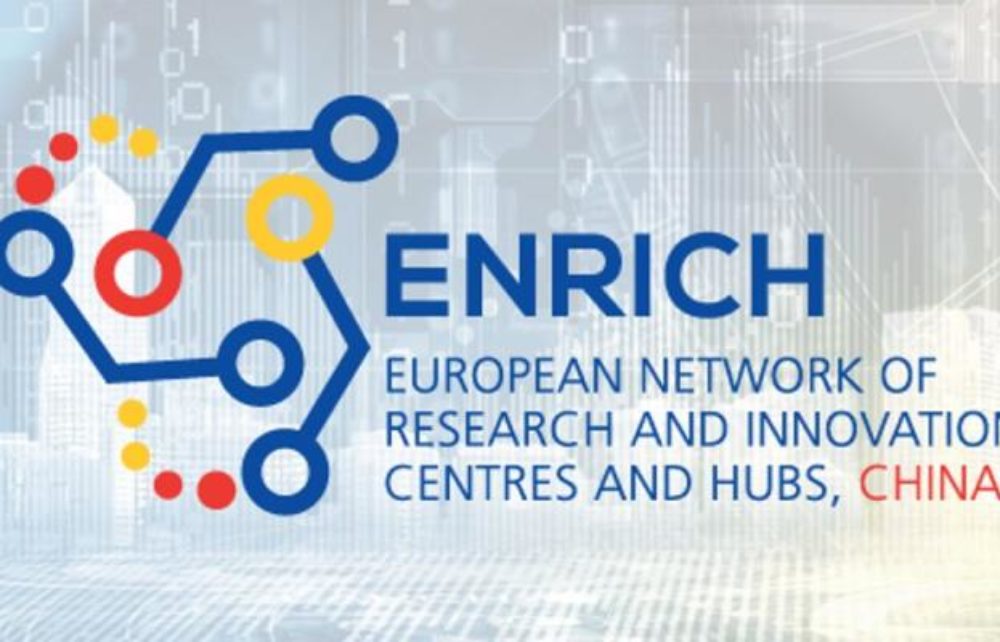*Dr. Sara Medina, PhD
At the 2022 CCCM Conferences, Dr. Sara Medina, on behalf of SPI – Sociedade Portuguesa de Inovação, delivered a presentation on EU-China Talent Exchanges and European Comission initiatives that involve both regions.
Higher education and Research are vital parts in the development of any country since it makes them be closer to having a workforce that is qualified to develop and transmit added value to their economies.
China is not an exception to this rule and many students have travelled abroad to enrich their knowledge or work in cooperation with international entities and, as such, maximize the chances of being a productive asset for their country when they return home.
During the last ten years, the number of Chinese students studying abroad increased steadily and by 2019, more than 700 thousand had continued their studies overseas.
The situation has since changed and as analyzed by the Big Data Development Department of the Chinese National Information Centre, there were one million returnees in 2021 alone, mainly due to the COVID-19 pandemic.
A preference for domestic epidemic control has been cited as the main reason behind the return of these talents despite universities having started online courses as a contigency measure. According to Lockin, only 41.58% of the students who started having online classes stayed in their study destinations. This means 58.42% decided to return to China, even though academic activities, in foreign countries, were exclusively online.
Chinese students still mainly choose North America for overseas education but the situation appears to be slightly changing. Advantageous factors in the UK, such as the re-opening of Post-Study Working Visa (PSW visa) has led to a significant increase in percentage of students who choose to study in the UK.
They are highly qualified and, as disclosed by Lockin, 68% possess a master degree and 26% a bachelor degree. In regards to Ph.D. students, the situation is still very minor in percentual terms, standing at 6%.
Most talents still choose to study business management, economics and finance majors and more than 50% of returnees gave priority to the financial industry in terms of career development. The rapid development of China’s Internet industry, shown by Lockin, and its increasing global influence is changing the aforementioned trend and recent graduates are focusing on this field.
In addition there are several initiatives under the European Commission that involve Chinese partners and serve to strengthen cooperation between regions:
Horizon Europe programme (https://ec.europa.eu/info/research-and-innovation/funding/funding-opportunities/funding-programmes-and-open-calls/horizon-europe_en) facilitates collaboration and strengthens the impact of research and innovation in developing, supporting and implementing EU policies while tackling global challenges. It supports creating and better dispersing of excellent knowledge and technologies.
ENRICH in China’s – EiC (https://china.enrichcentres.eu/) was initially promoted by the European Commission through Horizon 2020. Its mission is to support European SMEs, start-ups and researchers in developing research and innovation partnerships with Chinese counterparts via webinars, regional hubs and soft landing zones. Being a unique catalyst for connections among science, technology and innovation (STI) organizations between Europe and China is the vision behind EiC.
EURAXESS (https://euraxess.ec.europa.eu/) is a platform for researchers, entrepreneurs, universities and businesses, allowing all involved parties to interact with each other. It currently has 138073 registered members, which has resulted in the creation of a network of 20363 organizations and universities. The platform offers 15064 research positions and 135 funding opportunities. EURAXESS’s Chinese hub (https://euraxess.ec.europa.eu/worldwide/china) aims to promote researcher mobility and cooperation in multiple disciplines.
This allows us to conclude that nobody is an exception to today’s globalized world. As such, China has multiple examples of cooperation with international programs and much of their workforce has had experiences abroad as a way of developing their skills.




